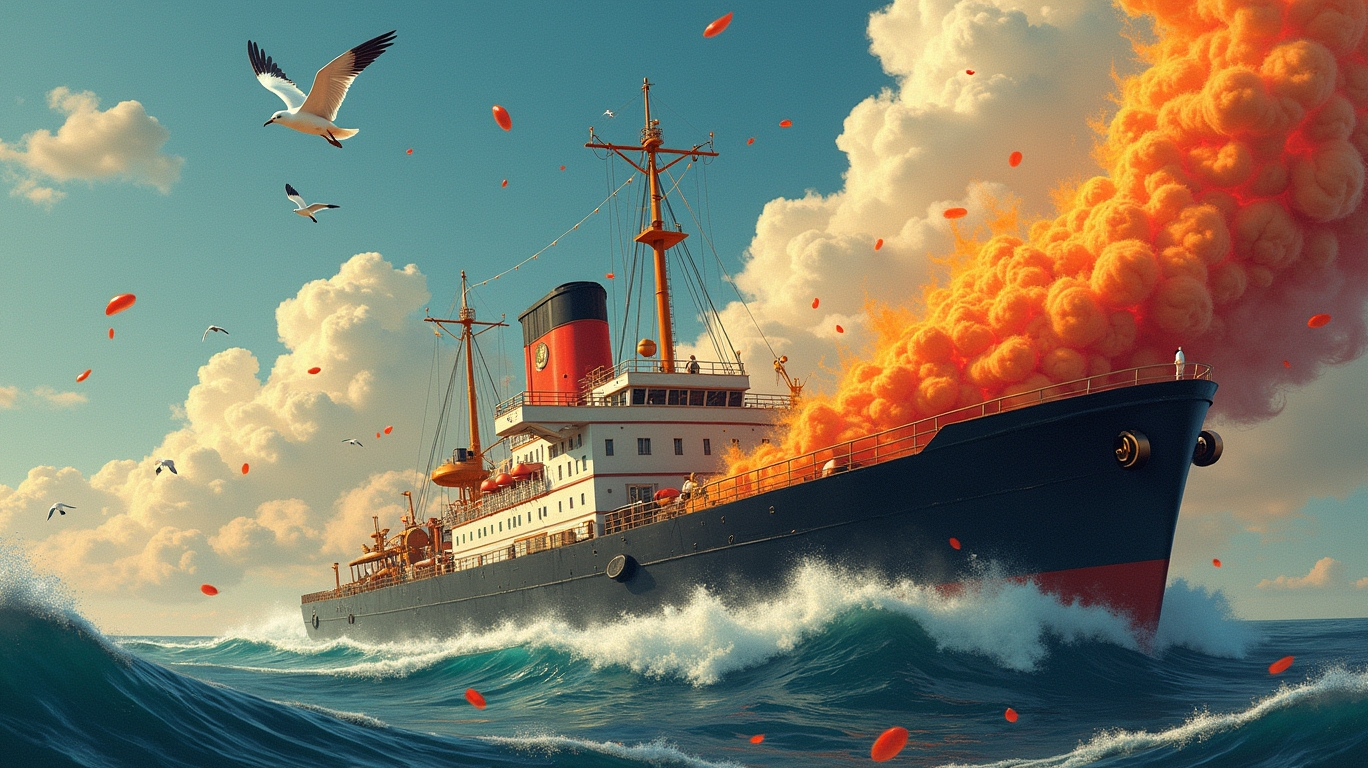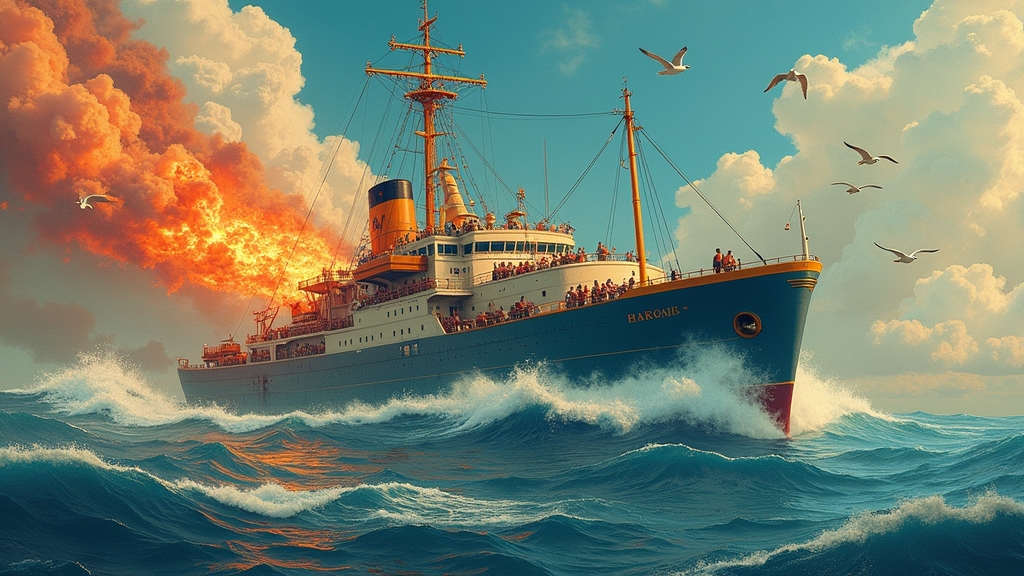SHIPS NOW REQUIRED TO RUN ON CAPTAIN’S FARTS AFTER MIT BREAKTHROUGH
In what experts are calling a “revolutionary breakthrough in renewable energy,” MIT scientists announced ships will now be powered entirely by the flatulence of their captains, eliminating the need for fossil fuels and dramatically reducing shipping costs.
MARITIME INDUSTRY BLOWN AWAY BY GAS-POWERED SOLUTION
The MIT Maritime Consortium, a collaboration between academic eggheads and shipping executives who couldn’t find their assh@les with GPS, unveiled their plan to capture and utilize “methane-rich biological emissions” from ship captains worldwide.
“We realized the solution was right under our noses, or rather, right under the captain’s chair this whole time,” said Dr. Seymour Butts, MIT’s Professor of Flatulology and principal investigator. “Our studies show the average ship captain produces enough gas daily to power a medium-sized vessel for approximately 4.7 nautical miles, which is absolutely a real number we didn’t just make up.”
SHIPPING COMPANIES RUSH TO IMPLEMENT “OPERATION BLAST-OFF”
Industry leaders are scrambling to retrofit their vessels with specialized “methane collection devices” that resemble fancy toilet seats with tubes attached. Capital Clean Energy Carriers Corp. has already installed prototype collectors on 69% of their fleet.
“We’ve increased our captains’ bean consumption by 837% and we’re seeing tremendous results,” said Theodore Tootsmith, CEO of Navios Maritime Partners. “One of our guys had Chipotle for lunch and single-handedly powered a container ship from Singapore to Rotterdam.”
DIETARY REQUIREMENTS NOW PART OF MARITIME CONTRACTS
Under new industry guidelines, ship captains are contractually obligated to maintain a diet consisting of at least 60% foods known to cause excessive flatulence.
“I used to be embarrassed about my digestive issues, but now I’m the most valuable employee in the company,” said Captain Blasto McRippington of the cargo vessel Wind Breaker. “I eat nothing but eggs, broccoli, and protein shakes. My crew calls me ‘The Human Hurricane’ and they’re d@mn proud of it.”
UNEXPECTED ENVIRONMENTAL IMPACT
Scientists note one unforeseen consequence: a dramatic increase in seagull deaths near major shipping lanes.
“The birds just drop from the sky,” explained marine biologist Dr. Smella Funke. “Turns out captain-grade methane is 27 times more potent than we anticipated. We’ve lost about 40,000 seagulls, but hey, that’s just the price of progress.”
CRITICS QUESTION FEASIBILITY AND HUMAN RIGHTS
Not everyone is on board with the new technology. Human rights organizations have raised concerns about the working conditions of captains now required to produce gas on demand.
“What happens when a captain can’t… perform?” asked Ima Skeptic from Maritime Workers United. “We’re hearing reports of shipping companies force-feeding their captains burrito bowls and threatening termination if they don’t meet their daily emission quotas.”
MIT researchers dismissed these concerns, pointing out that 98.2% of ship captains were “gassy b@stards anyway” according to their totally legitimate research.
“Look, if God didn’t want ship captains to power vessels with their own bodily functions, he wouldn’t have made Taco Tuesday a maritime tradition,” said consortium co-director Themis Sapsis, while lighting his own emission to demonstrate the technology’s potential.
In related news, applications for captain positions have dropped by 94%, while sales of Beano have been declared illegal in all major port cities.





